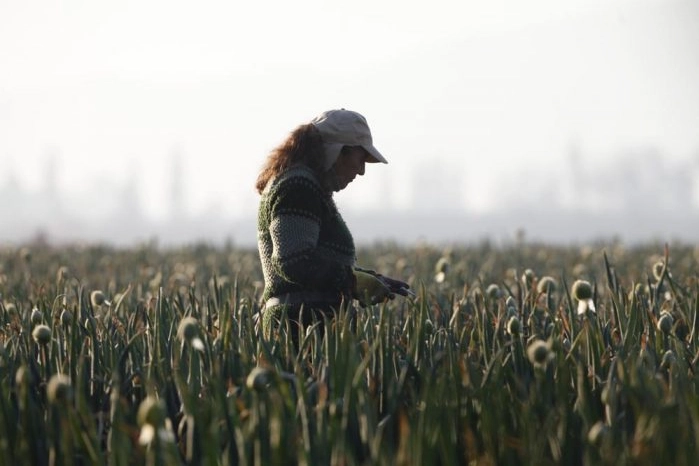Since 2020, the wealth of the world’s five richest men has doubled, while the wealth of around 5 billion people has decreased. According to OXFAM International‘s annual report on global inequality presented at the World Economic Forum in Davos, extreme wealth accumulates geographically and is available only to a small minority: almost 70% of wealth is concentrated in the global North and is male. Men own US$105 trillion more wealth than women, which is more than four times the size of the U.S. economy.
Gender inequality, which is growing out of control every year, is worsening in the context of the current environmental crisis. Today, corporate power, mostly Western, male, and responsible for greenhouse gas emissions, increases the risk of climate collapse and deepens the injustices that characterize our societies.
Women are poorer than men
According to the United Nations, women globally face multiple forms of inequality and discrimination: they are poorer than men; they have the most precarious and lowest-paid jobs; they suffer exploitation, abuse and systemic violence; they do most of the unpaid domestic and care work; they have less access to education and health; they are underrepresented in all spheres of political and economic power; and they are often excluded from decision-making. Along these lines, OXFAM’s Inequalities Inc. report reveals a bleak scenario where hunger, extreme inequalities, labor exploitation, and various hardships characterize the daily lives of a large part of the world’s population and are aggravated based on gender.
Despite advances in equality recently, UN Women and the United Nations Department of Economic and Social Affairs (UNDESA) estimate that at the current rate, 340 million girls and women will be living in extreme poverty by 2030. In addition, one in four women and girls will experience hunger or food deficiency.
In addition, women and girls suffer disproportionately from the impacts of climate change, according to the Secretariat of the United Nations Framework Convention on Climate Change. As an example, women account for 80% of forced displacement associated with climate change and experience hunger, violence, exclusion, and sexual exploitation in disaster contexts more acutely.
Besides, while women are primarily responsible for food processing, care, and agricultural work, traditional gender structures hinder their right to land ownership, limit their access to natural resources, and exclude them from participation and decision-making on environmental issues.
The prominent role of women in the defense of the environment
Women also play a fundamental role in sustainability, environmental care, and the processes of resistance and environmental struggle against extractivism and deforestation. As a consequence, many women are censored, suffer multiple forms of violence and criminalization, and even pay with their own lives.
In this context, Latin America and the Caribbean are the regions with the highest number of murdered environmental activists and defenders in the world, most of them women, especially indigenous, women of color and peasants. According to the Office of the United Nations High Commissioner for Human Rights, 166 homicides of Latin American women activists and land defenders were reported between 2015 and 2019, but this is a largely underestimated reality.
Even in such a violent and unequal context, women politicians, researchers, and environmental activists are also behind the construction of alternatives and have been protagonists of important advances in the environmental and climate agenda such as the signing of the Paris Agreement, the Escazú Agreement or the Ecosocial and Intercultural Pact of the South. In other words, inside and outside institutions, women are agents of change and work globally in favor of life and an ecological transformation that allows building a sustainable and just future for all.
The 2030 Agenda establishes as its fifth Sustainable Development Goal (SDG) to achieve gender equality and empower all women and girls. Therefore, in the fight against inequality, social justice cannot be dissociated from gender justice and environmental justice. Inequality is a burden for everyone, but it is not an inevitability and, as scientific evidence shows, it can and must be defeated with specific goals and policies in which rich countries have the main responsibilities.
In this process, women are part of the solution and have a fundamental role to play in the fight against climate change and the inequalities exacerbated by the environmental crisis. Therefore, to save the planet, it is a priority to make their role visible, promote gender equality in all dimensions, and achieve their representation and full participation in decision-making.
*Translated by Janaína Ruviaro da Silva from the original in Spanish.












